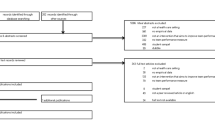Abstract
Concepts that include the participation and empowerment of workers are becoming increasingly important nowadays. In many of these concepts, the formal responsibility is delegated to teams. Does this imply that the normative responsibility for the actions of teams is also delegated? In this article we will reflect on the difference between holding a person accountable and bearing responsibility. A framework is elaborated in order to analyse the accountability and responsibility of teams. In this framework, the emergence of a collective mind, and the organisational factors that influence the extent to which teams have the possibility of acting in a responsible way play an important role. It shows that teams can bear responsibilities that could never be carried by a group of individuals. The framework is used to analyse two sample cases with self-managing teams in production facilities. The authors discuss the implications for the theory and practice of self-managing teams and the allocation of responsibility between individuals, teams and the organisation.
Similar content being viewed by others
References
Appelbaum, E. and R. Batt: 1994, The New American Workplace. Transforming Work Systems in the United States (ILR Press, Ithaca New York).
Asch, S. E.: 1952, Social Psychology (Prentice Hall, Englewood Cliffs).
Aubrey, C. A. and P. K. Felkins: 1988, Teamwork: Involving People in Quality and Productivity Improvement (ASQC Quality Press, New York).
Benders, J. and G. van Hootegem: 1996, 'A Team is Not a Team; Towards a Typology for Comparing Shopfloor Teams', paper WESWA Conference, Utrecht.
Bolwijn, P. T. and T. Kumpe: 1990, 'Manufacturing in the 1990s - Productivity, Flexibility and Innovation', Long Range Planning 23, 44–57.
Bovens, M. A. P.: 1990, Verantwoordelijkheid en organisatie; beschouwingen over aansprakelijkheid, institutioneel burgerschap en ambtelijke ongehoorzaamheid (Tjeenk Willink, Zwolle) (in Dutch).
Chen, A. Y. S., R. B. Sawyer and P. F. Williams: 1997, 'Reinforcing Ethical Decision Making Through Corporate Culture', Journal of Business Ethics 167, 855–865.
Crosby, P. B.: 1979, Quality is Free; The Art of Making Quality Certain (McGraw-Hill, New York).
French, P. A.: 1984, Collective and Corporate Responsibility (Columbia University Press, New York).
Heller, F., P. Drenth, P. Koopman and V. Rus: 1988, Decisions in Organizations: A Three-country Comparative Study (Sage Publications, London/Beverly Hills).
Hogenhuis, C. T.: 1993, Beroepscodes en morele verantwoordelijkheid in technische en natuurwe-tenschappelijke beroepen; een inventariserend onderzoek (Ministerie van onderwijs en wetenschappen, MCKS) (in Dutch).
Huijgen, F.: 1997, 'Direct Employee Participation and Other Management Initiatives in Ten European Countries', in E. H. Bax (ed.), Conference Proceedings “Management at a Crossroads”; Volume I New Production Concepts and Labour (Groningen).
Jackal, R.: 1988, Moral Mazes; The World of Corporate Managers (Oxford University Press, Oxford).
Jonas, H.: 1984, The Imperative of Responsibility; In Search of an Ethics for the Technological Age (Chicago Press, London).
Katzenbach, J. R. and D. G. Smith: 1993, The Wisdom of Teams, Creating the High Performance Organization (Harvard Business School Press, Boston).
Leede, J. de: 1997, Innoveren van ondereop; over de bijdrage van taakgroepen aan product-en procesvernieuwing (Kluwer Bedrijfsinformatie, Deventer (in Dutch).
Lenk, H.: 1992, Zwischen Wissenschaft und Ethik (Suhrkamp Verlag, Frankfurt am Main).
Lucas, J. R.: 1993, Responsibility (Clarendon Press, Oxford).
Manz, C. C. and G. L. Stewart: 1997, 'Attaining Flexible Stability by Integrating Total Quality Management and Socio-technical Systems Theory', Organization Science 8(1), 59–70.
McLoughlin, I. and J. Clark: 1994, Technological Change at Work, second edition (Open University Press, Buckingham).
Sandelands, L. E. and R. E. Stablein: 1987, 'The Concept of Organization Mind', in S. Bacharach and N. DiTomaso (eds.), Research in the Sociology of Organizations (JAI Press, Greenwich), pp. 135–161.
Sitter, L. U., J. F. den Hertog and B. Dankbaar: 1997, 'From Complex Organizations with Simple Jobs to Simple Organizations with Complex Jobs', Human Relations 50(5), 497–535.
Thompson, D.: 1988, 'Ascribing Responsibility to Advisors in Government' First issue in 1983, Reprint in: Ethical Issues in Professional Life (Oxford University Press, New York).
Trist, E. L.: 1981, 'The Sociotechnical Perspective; The Evolution of Sociotechnical Systems as a Conceptual Framework and as An Action Research Program', in A. H. van de Ven and W. F. Joyce (eds.), Perspectives on Organization Design and Behavior (John Wiley and Sons, New York).
Victor, B. and J. B. Cullen: 1988, 'The Organizational Bases of Ethical Work Climates', Administrative Science Quarterly 33, 101–125.
Weick, K. E. and K. H. Roberts: 1993, 'Collective Mind in Organizations; Heedful Interrelating on Flight Decks', Administrative Science Quarterly 38 (September), 357–381.
Wellins, R. S., W. C. Byham and J. M. Wilson: 1991, Empowered Teams; Creating Self-directed Work Groups that Improve Quality, Productivity and Participation (Jossey-Bass Publishers, San Francisco).
Wempe, J.: 1998, Market and Morality; Business Ethics and the Dirty and Many Hands Dilemma thesis Erasmus Universiteit, Rotterdam).
Werhane, P. H.: 1985, Persons, Rights and Corporations (Prentice-Hall Inc., Englewood Cliffs).
Zuthem, H. J. van: 1986, Rechtvaardigheid en doelmatigheid (Van Gorcum, Assen/Maastricht) (in Dutch).
Author information
Authors and Affiliations
Rights and permissions
About this article
Cite this article
de Leede, J., Nijhof, A.H.J. & Fisscher, O.A.M. The Myth of Self-Managing Teams: A Reflection on the Allocation of Responsibilities between Individuals, Teams and the Organisation. Journal of Business Ethics 21, 203–215 (1999). https://doi.org/10.1023/A:1006254728319
Issue Date:
DOI: https://doi.org/10.1023/A:1006254728319




